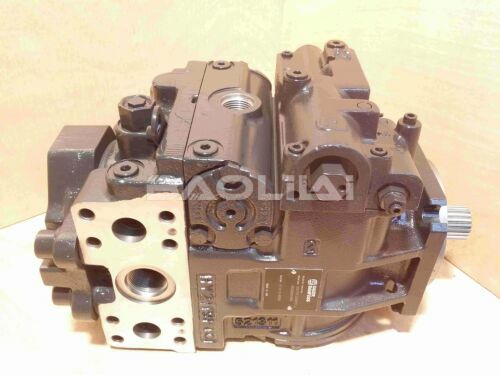Hydraulically actuated valves provide fast and precise control
The decision to use a single or double layer valve for a hydraulic pump depends on the specific application requirements and performance needs. Both types of valves are used in hydraulic systems to control fluid flow and pressure, but they differ in design and function.
Single layer valves have one flow path and one pressure port and are typically used in applications where simple on/off control is sufficient. They are simpler and less expensive than double deck valves and are often used in smaller hydraulic systems or applications where cost is a major consideration.
Double layer valves, on the other hand, have two or more flow paths and pressure ports designed to provide more precise control over fluid flow and pressure. They can be used to regulate flow in both directions and can be configured to provide multiple flow paths and pressure settings. Double layer valves are generally more expensive and complex than single layer valves, but can provide greater functionality and performance in more demanding applications.
Ultimately, the choice between single-deck and double-deck valves depends on the specific requirements of the hydraulic system and the level of control and performance required. Factors such as flow, pressure and operating conditions should be considered when selecting the proper valve for a given application. Consultation with a qualified hydraulic technician or supplier is recommended to determine the best valve type for your system.

When selecting a valve for a hydraulic system, it is also important to consider the type of valve actuation. Valves can be actuated manually, mechanically, electrically or hydraulically, and the type of actuation can have an impact on valve performance and reliability.
Manual valves are simple and reliable, but can be slow and require operator intervention. Mechanical valves are generally faster and more reliable than manual valves, but may require regular maintenance to ensure proper operation. Electric valves provide quick and precise control, but can be more complex and expensive than mechanical or manual valves. Hydraulically actuated valves can provide fast and precise control and are often used in high-pressure applications, but may require additional hydraulic components and complexity.
In addition to valve type and actuation, other factors such as valve size, pressure rating and materials of construction should be considered when selecting a valve for a hydraulic system. It is recommended to work with a qualified hydraulic supplier or technician to ensure that the selected valve is suitable for the specific application and performance requirements.
Proper installation and maintenance of valves is also critical to ensuring their reliable and safe operation in hydraulic systems. Valves should be installed and aligned properly, with proper fittings and connections to prevent leaks or other problems. It is also important to ensure that the valves are sized for the system flow and pressure and that they are operating within their rated capacity to prevent damage or failure.
Regular maintenance and inspection of the valve is also recommended to ensure its continued safe and reliable operation. This may include regular cleaning and lubrication, as well as checking for wear, corrosion or other issues that may affect valve performance. Any questions or concerns related to the valve should be addressed promptly to prevent system damage or failure.
In summary, the choice of single-layer valves and double-layer valves for hydraulic pumps depends on specific application requirements and performance needs. When selecting a valve, it is important to consider factors such as flow, pressure and operating conditions, as well as the type of valve actuation and other factors such as valve size, pressure rating and materials of construction. Proper installation and maintenance of valves is also critical to ensuring their reliable and safe operation in hydraulic systems.
This article is published by the official website of Baolilai Hydraulics, please contact the author and indicate the source for reprinting:https://www.baolilai-pump.cn/news/348.html






